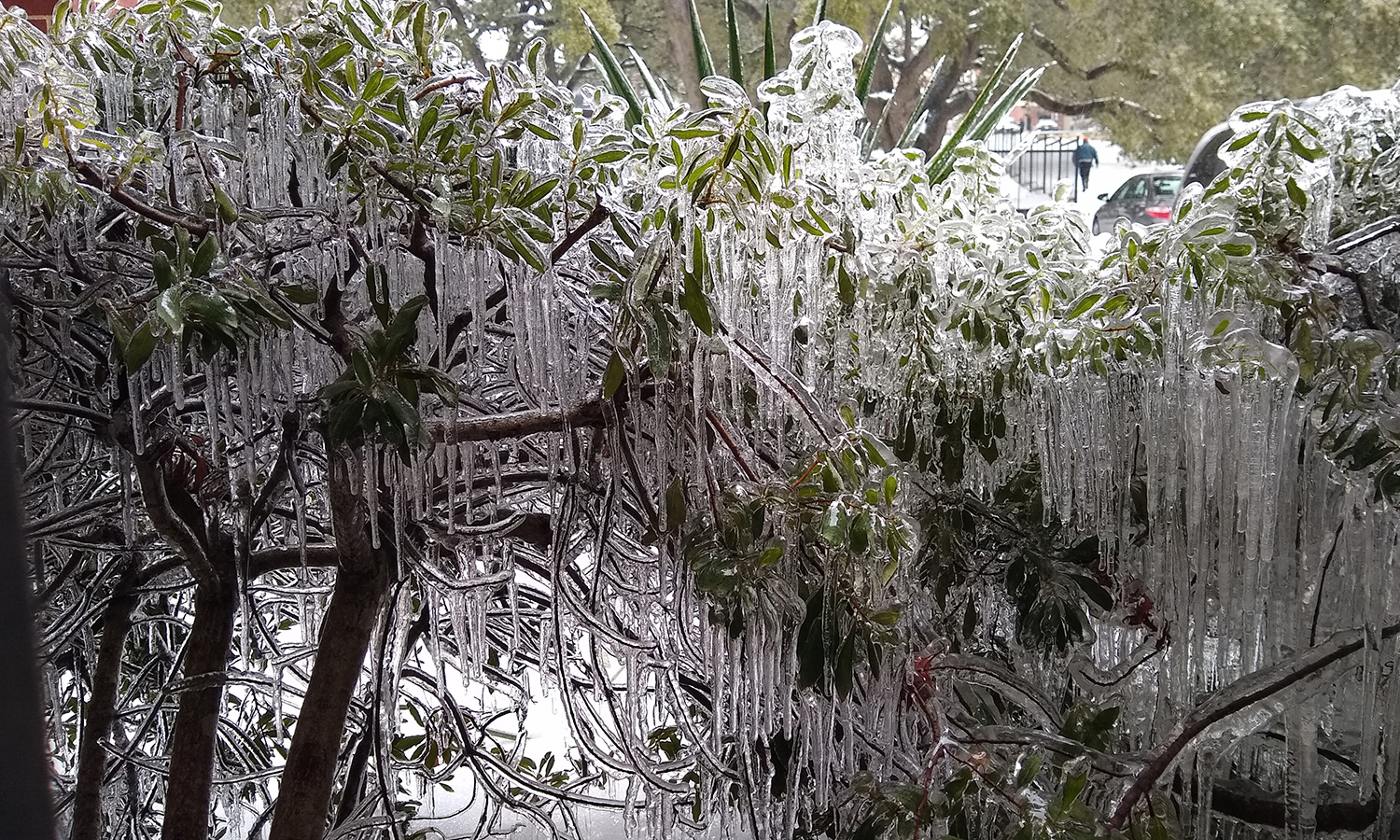Responding to Disaster: Extreme Winter Weather
While the northern regions of the U.S. are more susceptible to extreme winter weather, Texans have also seen snow, ice and winds wreak havoc. In the event that you’ve experienced damage from extreme winter weather, RBFCU Insurance Agency offers insights on what to do next.

Alas, even a relatively small accumulation of winter precipitation can bring about tree damage, widespread power outages and other events that can affect your home and personal property.
More than a mere inconvenience, these serious storms can have major, costly consequences such as burst household pipes, gas leaks from poorly tended heating systems, and vehicle accidents on slippery roadways.
If you find yourself addressing damage from a minor or major disaster, trust that you have our compassion and concern. Again, we also have the following tips to share.
The role your insurance provider plays now
Whatever the origin of your immediate concern, know that your insurance provider — or the company to whom you pay money for your home, auto or property coverage — is there to help you navigate a disaster’s immediate aftermath.
From assessing the extent of the damage you’ve experienced to connecting you with people who can help you make repairs to your home or automobile, an immediate and direct call to your insurance provider is among the first calls you should make.
Alas, no insurance policy covers all conceivable disasters. This is another reason it’s important to speak with your provider directly to determine how they may be able to help, based upon the policy you currently hold.
Yes, although your insurance agent or agency may be concerned about you and your personal well-being, it’s your provider who will walk you through those critical next steps to address needed repairs.
» Tip: Need shelter, food or safe water in the wake of a large-scale disaster? Contact the American Red Cross1 and watch or listen closely to local media, which may have additional resources to help.
If you are covered for the disaster you’ve experienced, this call will help expedite your insurance claim processing and potentially speed up the repair and recovery process.
Note that, if a major winter storm has occurred across a large geographic area affecting many people, it may take time to connect with your provider. The sooner you call, the earlier you’ll be on the list of visits your claims adjuster must make. Don’t delay!
You also may want to:
- Take photos and videos of the damage. Do NOT throw any items away until cleared by your insurance adjuster, also referred to as a claims adjuster.
- Make temporary repairs, if possible, to prevent further damage or for safety’s sake. Refrain from making permanent repairs, however, before your claims adjuster has seen the damage.
- Keep a list of repairs. Save all of your receipts. Document every call you have with your insurance company. And don’t forget to watch out for home improvement scams, too.
For additional disaster recovery tips, visit the U.S. Department of Homeland Security’s Ready.gov.2
Protect yourself from future extreme winter weather
If you’re reading this article with an eye to protecting your home, car or other personal property from severe seasonal storms, here are some forward-thinking actions you can take:
- On the outside of your home, keep drains, gutters and downspouts free of debris that could cause melting precipitation to pool close to your home, resulting in water damage.
- In your home’s interior spaces, take good care to keep all systems (electrical, plumbing, HVAC) in working order and ensure everything is well-insulated.
- If you have space heaters or fireplaces, clear all combustibles and keep them away from heat. Detectors for smoke and carbon monoxide can be purchased from hardware stores and should have fully charged batteries.
- When freezing temperatures are projected, protect your interior and exterior pipes so that they do not burst.
- Learn how to select and hire a contractor as well as how to spot a home improvement scam.
On the road, winter storms can present serious hazards for drivers, including icy patches and the notorious “black ice,” a sheer, hard-to-see layer that can cause an accident. To protect yourself while driving, you may want to:
- Keep your car and tires in excellent working condition.
- Place an emergency kit in your vehicle.
- Dress for the weather (and perhaps pack a blanket).
- Try to avoid driving during inclement weather. If you must go out, drive cautiously and allow for ample time to reach your destination.
About us
At RBFCU Insurance Agency, although there are limits on what we can do to help you in the immediate wake of a disaster, we are here to help you explore insurance coverage options (including providers and rates) so that you may be better prepared for future events or accidents.
To learn more about auto and personal property coverage options, request a quote or have us review your policy today.




.jpg?sfvrsn=b6afb2a8_4)